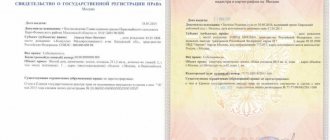Who is recognized as the owner?
Today, all issues related to the privatization of non-residential premises are within the jurisdiction of Federal Law 159 of July 22, 2008.
At the time when the property has not yet undergone the above procedure, it is directly owned by the state, represented by the local municipality.
This means that local governments have the authority to carry out various transactions with property, as well as use it for government needs. Upon completion of the privatization procedure, the owner of the property can become either an individual or a legal entity.
REFERENCE. The law does not prohibit these entities from participating in the privatization process, but it does provide for certain stages of the procedure that must be carried out without fail.
We will look further into how to privatize non-residential premises in an apartment building.
Details about the rights and obligations of owners of non-residential premises in non-residential and residential buildings
- A citizen or other person legally present in the country.
- Organizations, both commercial and non-profit.
- The state represented by both the Russian Federation as a whole (federal state property) and its individual subjects.
- Local government bodies (municipal property).
- Shared – this occurs in the vast majority of cases. With it, each party owns a clearly defined share in the right to the premises.
- Joint . With this form, shares are not determined in advance. This may happen if the premises belong to spouses (Article 34 of the RF IC), a farm (Article 257 of the RF Civil Code), SNT (Article 4 of the Federal Law No. 66-FZ of April 15, 1998 - until January 1, 2020) or some other rare subjects.
We recommend that you read: Russian Railways Discount for Schoolchildren Summer 2020
How to privatize non-residential premises?
How does registration of non-residential premises take place? Regardless of who you are, an individual or a legal entity, at the initial stages the principle of going through the procedure is the same for you.
- You must draw up a package of documents before contacting the administrative authority, check it yourself, and draw up an application in accordance with the collected papers. This application is a request to register real estate as your direct property.
- The second step is to submit the application, accompanied by the documents included in the package, to the administrative body of the local government. To do this, you just need to contact the office in the organization.
- Your package of documents must be reviewed no longer than 30 calendar days. The review is carried out by the relevant commission, which is in charge of the alienation of real estate owned by the local government body.
- The submitted application is given either a negative or a positive answer.
- In a situation where the decision on your issue is positive, the municipal authority gives written consent to the transfer of ownership of the property.
- The value of the real estate is determined.
- Payment options are being discussed. You can make the purchase in a lump sum, that is, pay the full specified cost, or pay the amount in installments, using a three-year installment plan. An installment plan agreement is drawn up or the amount established by the municipal authority is paid.
- It is necessary to provide a receipt confirming the fact of payment to the administrative authority.
- Within 60 days from the date of payment of the amount, it is necessary to obtain a resolution created by the administrative body, which highlights the fact of the direct transfer of real estate into the ownership of a citizen or legal entity.
- Next, you need to contact the registration authority with an application and a resolution in order to obtain a certificate of ownership. It will take about 30 days to receive such a document.
- After the specified time has passed, a citizen or representative of a legal entity appears at the registration authority and picks up a certificate of ownership.
During this time, the administration must transfer technical documentation to the newly-minted owner, which includes a cadastral passport, as well as a plan and other papers.
One can trace an incredible similarity with the implementation of privatization of residential premises. However, there are still significant differences, although the step-by-step instructions look monotonous.
REGISTRATION OF OWNERSHIP FOR NON-RESIDENTIAL PREMISES, BUILDINGS, STRUCTURES
Information about existing rights to real estate objects and data about these objects are contained in the Unified State Register of Real Estate (USRN, formerly called EGRP).
The basis for making an entry in the Unified State Register of Real Estate is the state registration of ownership of real estate. Therefore, when changing the owner, changing his personal data or changing information about the property, it is necessary to go through the state registration procedure with the Federal Service for State Registration, Cadastre and Cartography (Rosreestr). From the above it follows that it is necessary to register property rights when purchasing, dividing, donating or inheriting
non-residential (commercial) real estate. Also, state registration of property rights is required when rebuilding, remodeling or reconstructing non-residential premises, buildings, structures. Prices and procedure for supporting commercial real estate transactions HERE.
The emergence of ownership rights to newly created buildings is associated with the moment of state registration (Article 219 of the Civil Code of the Russian Federation). This right belongs to the owner of the plot under the house, unless otherwise provided by law. The owner of the building and the land underneath it has an obligation to simultaneously transfer rights to both objects. If this requirement is violated, the transaction will be invalid.
According to Art. 40 of Federal Law No. 218-FZ regulates the features of cadastral registration and registration of ownership of newly created buildings and structures: - these procedures are carried out simultaneously in relation to the building and the plot under it, if the rights to the land have not previously been recorded in the Unified State Register of Real Estate; — when registering rights to a building, cadastral registration of all premises in it can be carried out simultaneously.
Cadastral registration and registration of buildings and structures is carried out on the basis of a commissioning permit and a title document for the plot of land under the specified objects. If the construction of a building did not require obtaining a building permit, its cadastral registration and registration will be carried out on the basis of the technical plan and title documents for the land.
Many individuals and legal entities own real estate acquired before 1998, including under privatization plans, including the property of factories, agricultural cooperatives, fish farms and other enterprises. During the period of registration of rights to such property in the Russian Federation, there was no single body carrying out state registration of rights. In addition, not all real estate transactions were subject to registration, so in such situations the concept of “previously arising right” is used.
Today, a previously arisen right that is recognized as actually existing in accordance with the Federal Law “On State Registration of Real Estate”, in the event of an application by the copyright holder for its state registration, is not always possible to confirm in accordance with the requirements of the said law. In such a situation, only a professional lawyer specializing in real estate transactions can help you. HERE you will learn how the transaction support process occurs.
Collection of documents
When privatizing non-residential premises in a residential building, the execution of a package of documents plays a huge role.
IMPORTANT. Pay attention to the correct formation of the package of documents if you are going to prepare them yourself for submission to the administrative authority, as well as the registering authority.
- First of all, you need to attach your passport as a certificate of identity;
- in a situation where we are talking about a legal entity, it is necessary to attach the statutory and constituent documents, as well as the passport of the person who is a representative of the company. An order must be attached indicating that the person has been chosen as a representative;
- A statement is provided indicating your wishes to privatize non-residential premises. Since most likely you have the desire to privatize the property as a result of a long execution of the lease agreement with the administration, you must provide a lease agreement;
- if you decide to privatize real estate without rent, simply by learning about this possibility, then you skip this point;
- you must attach the cadastral papers that you receive from the relevant institution, as well as a request for the service;
- If you submit a package of documents to the registration authority, then a Resolution from the administration on the transfer of the property to your future ownership is added to it.
Drawing up an application and its sample
We recommend filling out an application at your city administration. However, if you want to save time, or if this is impossible due to some circumstances, we recommend that you stock up on a sample to fill out in advance. If this is not the case, you can find information on the Internet.
- Whenever possible, the document is written in computer font.
- The header of the document indicates the name of the authority to which the documents are submitted.
- It is necessary to indicate the name of your local administration with all contact details.
- The following indicates from whom it is being submitted. Please provide your contact details.
- In the text of the application you must indicate on what basis you are applying for privatization. Perhaps this solution was chosen by you as a result of long-term cooperation under a lease agreement. Or perhaps you accidentally learned about the opportunity to privatize non-residential real estate.
- Then you need to indicate your willingness to pay the cost, as well as your desire to consider your candidacy. A list of attached documents is made, dated and signed.
REFERENCE. There are no clear legislative requirements on what such a document should look like.
In this form, the application is sent to the administration. Although we still recommend that you write such a document in accordance with the sample, we hope that you will avoid serious scrutiny from the receiving authority.
Is a premises privatization agreement necessary?
As such, there is no privatization agreement for the premises. No such document is prepared.
However, the local government authority issues another document in which you can safely contact the registration authority.
This is a decree on the transfer of real estate into the ownership of a specific citizen.
It has the seal of the administrative institution, as well as the signatures of the relevant persons. It is actually an act of privatization.
A certificate of ownership is issued on the basis of this document. As part of such a procedure, avoid drawing up a privatization agreement, because it does not exist.
What to do if lost?
If the certificate of ownership obtained from Rosreestr is lost, you must contact the same place to obtain a duplicate. The methods of application are the same as when submitting an application. It will cost 350 rubles for individuals and 1000 for organizations. This is stated in subparagraph 33 of Article 333.33 of the Tax Code.
You can restore a lost cadastral passport there . Restoring this document is free of charge.
As you can see, registering the premises itself and the ownership rights to it are different procedures. They are carried out separately, albeit by one body - Rosreestr. Various documents are also issued: a cadastral passport and a certificate of ownership.
Didn't find the answer to your question? Find out how to solve exactly your problem - call right now:
+7 (Moscow) +7 (St. Petersburg)
State duty amount
Currently, the state fee for registration of the privatization procedure is 2,500 rubles. for individuals and 22,000 rubles. for legal entities . You will say nothing at all, and you will be right. You will pay the main cost to the local government, as if under a purchase and sale agreement.
Submission of papers: in person and by proxy. You can submit documents in person or through an authorized representative. Many recommend using the first option, since you still have the opportunity to find out the issues of concern and interest from the providing body - the municipality.
However, if circumstances do not allow personal appearance, you can seek the help of a trusted person who will be happy to help you. To do this, he must have a power of attorney with him, which is certified by a notary.
General procedure for registering real estate ownership
According to general legal norms, all transactions made with real estate must be registered with Rosreestr. At the same time, the procedure for registering real estate and the legally required list of documents differ depending on the type of real estate and the acquisition method.
The law defines a fairly broad list of grounds for registering rights to real estate; accordingly, the list of documents required for this depends on each specific case. For example, it plays a role whether real estate is purchased on the primary or secondary market. Let's consider purchasing real estate on the secondary market on the basis of contracts: purchase and sale, exchange, donation (a more common name is registration of a deed of gift for an apartment).
The general list of documents for registration of real estate, suitable for all categories of real estate, can be determined as follows:
- relevant agreement;
- identification documents of applicants;
- statements from each party;
- receipts for payment of state duty in the name of the purchaser;
- other documents that, depending on the case, may be needed during registration, for example, such documents may be the consent of the spouse of the person who is the party transferring the right, in the case where real estate was acquired during marriage.
Having collected all the above documents, you need to apply in person, for example, to register an apartment at the MFC. The time frame for registering a right at the offices of the MFC “My Documents” will be nine working days. However, to save time and convenience for applicants, the state currently provides online services that operate in electronic digital format on the official website of Rosreestr, with the help of which you can submit documents without leaving your home. Registration deadlines for electronic application submission will be reduced by at least 2 days. The amount of state duty will also be 30% less.
Let us consider in more detail the registration of real estate of individual categories.
Completion of the procedure and registration
The procedure ends with you receiving a certificate of ownership. However, in a situation where you have not previously entered into a lease agreement for this real estate, you can play it safe and, together with the employees of the administrative body, draw up a transfer and acceptance certificate, according to which the transfer of non-residential premises into ownership will take place.
This means that the property described matches what you received. At this point, the transaction is completed, you become the full owner of the non-residential real estate building, although you still have to register the non-residential premises.
State duty for registration of rights to real estate - how much to pay
In 2020, with the entry into force of the amendments provided for by Federal Law No. 221-FZ “On Amendments to Chapter 25.3 of Part Two of the Tax Code of the Russian Federation” dated July 21, 2014, the state duty for registering real estate increased for citizens by 1,000 rubles, and for organizations – for 7,000 rubles.
The state fee for registering property rights in 2020 and 2020 for residential and non-residential premises for citizens is 2,000 rubles. When registering as common shared ownership, each share owner must pay 2,000 rubles (on a separate receipt). This condition does not apply to real estate registered as joint ownership.
Refusal to privatize
The administrative body has every right to refuse you to carry out a transaction in a situation where you are not suitable for the role of a person who has the opportunity to privatize. So, perhaps you do not have enough money to purchase it and you are lowering the price, or perhaps you do not have the necessary papers.
IMPORTANT. Only citizens of our country have the right to privatize real estate, therefore, if it turns out that you are a citizen of another state, you will be denied.
An incorrectly drawn up application, as well as incompletely collected documents for ownership of non-residential premises are grounds for refusal.
The same applies to the registration authority. A lack of documentation or the presence of an incorrectly drawn up application becomes the basis for starting the procedure from scratch.
Certificate of ownership
A certificate of ownership is a document drawn up on a special form. This document certifies your right to own, use, and dispose of real estate in accordance with your wishes. This means that only you have the right to carry out various transactions and actions with real estate. The registration authority is authorized to issue such a document.
Only after you have received a resolution from the administration and registered with the registration authority will you receive this certificate within 30 days.
The procedure for registering property rights
In accordance with paragraphs. 20 clause 1 art. 333.33 of the Tax Code of the Russian Federation (hereinafter referred to as the Tax Code of the Russian Federation), for state registration of rights, restrictions (encumbrances) of rights to non-residential premises, a state fee is paid by individuals in the amount of 2,000 rubles, by organizations - 22,000 rubles. At the same time, the state duty for state registration of rights to real estate and transactions with it is paid by payers before submitting applications and (or) other documents to perform these legally significant actions on the basis of paragraphs. 6 clause 1 art. 333.18 Tax Code of the Russian Federation.
Clause 2 of Art. 333.18 of the Tax Code of the Russian Federation provides that, if several payers who are not entitled to the benefits established by Ch. 25.3 “State duty”, state duty is paid by payers in equal shares. That is, if several individuals wish to register property rights, then the state duty is divided into equal shares in accordance with the number of participants. If the participants are an individual and a legal entity, then each of them pays 50% of the corresponding amount of the state duty.
State registration of ownership of non-residential premises is carried out upon application to the Rosreestr authority at the location of the property. The application must be accompanied by a receipt for payment of the state duty and documents necessary for registering property rights.
In addition to submitting an application for registration in person by an individual or legal entity or their representatives, it is possible to submit documents for registration of rights by mail (in this case, the application and contracts of transactions must be notarized), as well as through a notary who certified the transaction.
The result of the state registration is the making of inscriptions on title documents and the issuance of certificates of state registration of rights - Extracts from the Unified State Register of Real Estate (USRN).
If, during the legal examination, it is discovered that the submitted package of documents is incomplete, or there are errors in the submitted documents, you will be denied registration of property rights. In this case, you will have to prepare a new package of necessary documents and again submit an application to Rosreestr to register ownership of the property.
According to Russian legislation, the registration period for real estate rights is 30 days.
You can register ownership of non-residential premises (building, structure) either independently or through an authorized representative. The best choice would be to entrust this procedure to an experienced real estate lawyer - this will protect you from mistakes, due to which you can be denied registration and waste a lot of time and nerves.
You can familiarize yourself with the cost of services for registering property rights in a legal entity in the appropriate section.
Judicial practice in recent years indicates an increase in disputes related to refusals of local governments to provide supporting documents, which in most cases are necessary, because documentation on the transfer of objects into ownership was not properly drawn up, contracts and transactions were not registered, data on objects were not entered into the Unified State Register of Rights (USRE), technical documentation was not updated, if technical and cadastral registration was carried out at all, etc. At the same time, rights to objects after privatization could be transferred to other persons more than once without proper registration of transactions. Trying to register a previously arisen right, potential right holders sometimes provide the registration authority with all the accumulated, often contradictory, documents regarding such an object over the years, which significantly complicates the situation - a refusal to register a right can only be appealed in court.









